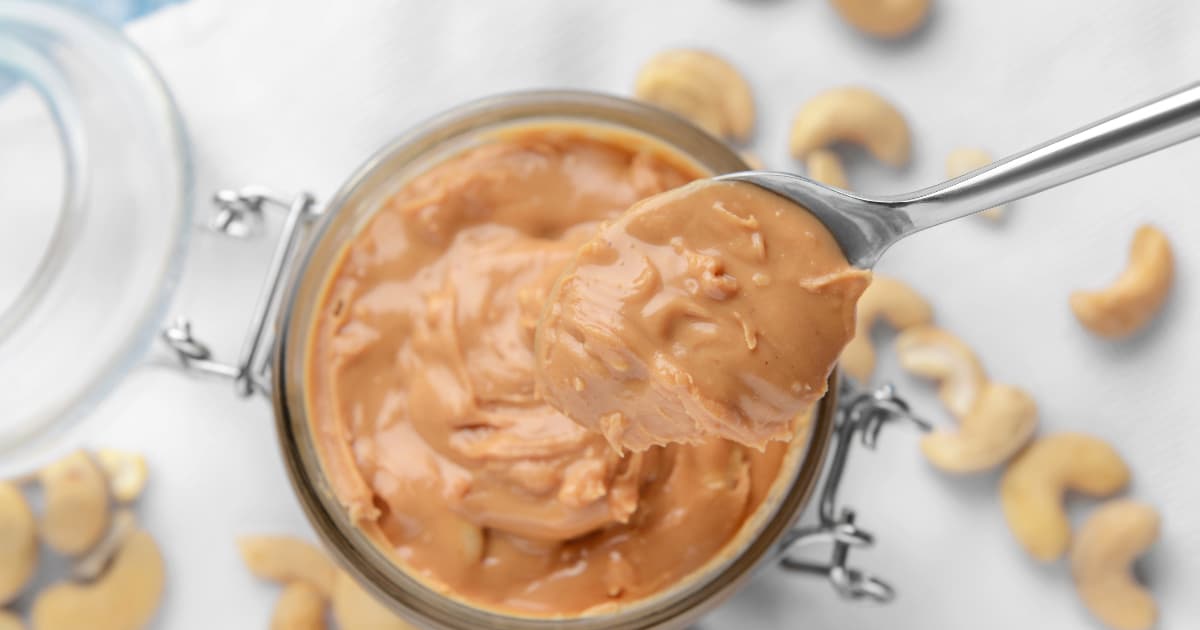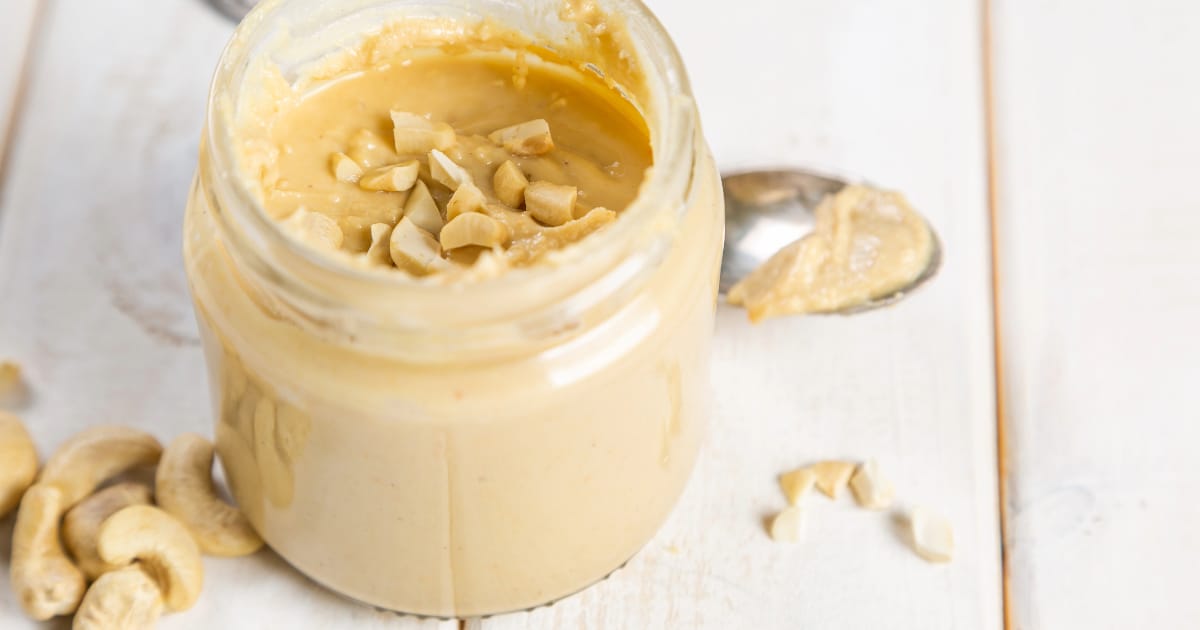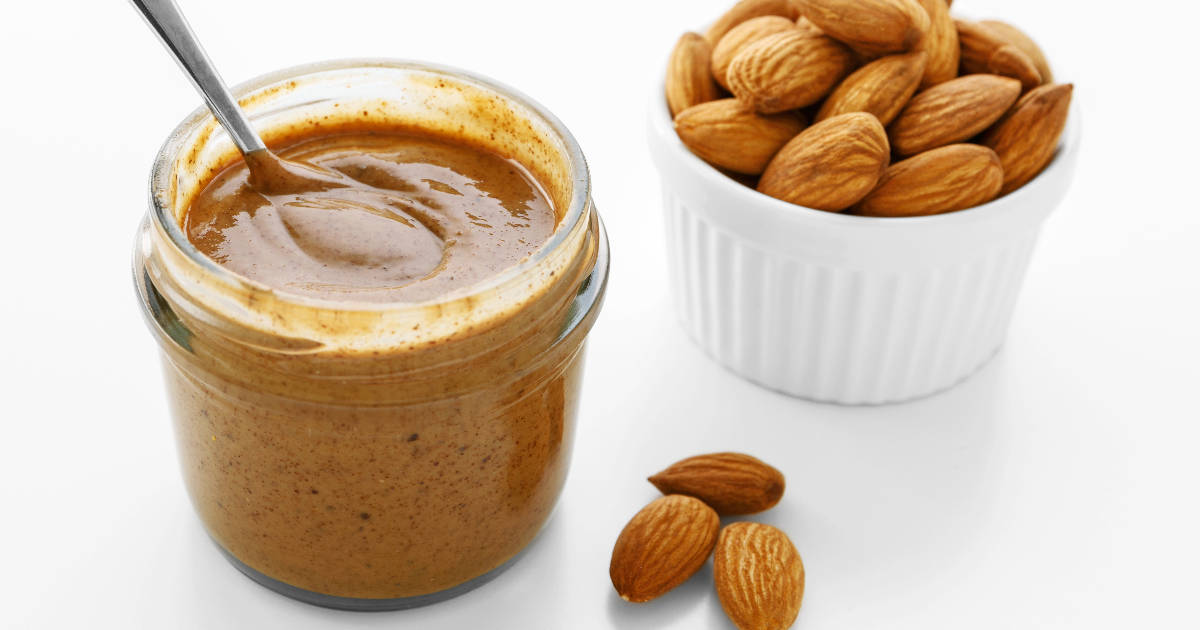Almond butter and cashew butter have become wildly popular alternatives to peanut butter in recent years. With their rich, nutty flavor and velvety texture, it's easy to see why. But when it comes to cashew vs. almond butter, which one comes out on top?

Both make delicious and nutritious additions to your diet. However, there are some key differences between these two nut butters that are worth considering before you stock up.
A Close Look at Cashew Butter

Let's start by getting to know cashew butter. This smooth and subtly sweet spread is made from one key ingredient - cashews! Here's an overview of how it's made and what sets it apart:
Production Process
To make cashew butter, cashews are first roasted to bring out their flavor. The nuts are then ground into a paste using a food processor or high-powered blender. The natural oils in the cashews are released during this process, giving the butter its signature creamy, smooth texture.
Sometimes a bit of salt or sweetener is added, but high-quality cashew butter contains just cashews and nothing else.
Flavor Profile
The flavor of cashew butter is subtly nutty, almost buttery. It's mildly sweet with a very mild saltiness. Since it has a more neutral, delicate flavor compared to other nut butter, cashew butter works well in both sweet and savory dishes without overpowering other ingredients.
Texture
Expect a supremely creamy, velvety texture from cashew butter. It spreads beautifully and has a mouthfeel similar to creamy peanut butter. Properly stored cashew butter may separate a bit, but a quick stir blends it right back together.
Nutrition
Cashews themselves are rich in minerals like magnesium, zinc, and copper. Cashew butter packs all these minerals into one spoonful, along with protein, healthy fats, and carbs. Two tablespoons contain around:
- 94 calories
- 2.8g protein
- 8g fat
- 4.4g carbs
- 0.3g fiber
Uses
The subtle nutty flavor and smooth texture make cashew butter incredibly versatile:
- Spread it on toast or waffles
- Add to smoothies for creaminess
- Use as a dip for fruit or pretzels
- Add to curries, stir fries, and Asian noodle dishes
- Blend into sweet treats like energy bites and chia pudding
- Swap for nut or seed butter in baking recipes
With its neutral flavor, cashew butter works well in both sweet and savory dishes. It adds nutrition while allowing other flavors to shine.
All About Almond Butter

Now let's switch gears and learn about almond butter. With its more pronounced nutty flavor, how does it compare to cashew butter?
Production Process
Almond butter starts with dry roasted almonds. The almonds are then pulsed in a food processor to release their oils and achieve a smooth texture. A bit of salt or sweetener may be added, but high-quality almond butter contains just almonds.
Flavor Profile
The flavor of almond butter is stronger and more distinctly nutty than cashew butter. You'll taste the true essence of almonds, with a subtle hint of chocolate or coffee flavor. It's mildly sweet like cashew butter, but has a more robust nuttiness.
Texture
Almond butter has a supremely thick, creamy texture, though not quite as velvety smooth as cashew butter. It can have a slightly gritty or coarse texture from the almond bits. But it still spreads beautifully and is deliciously thick.
Nutrition
Almonds are packed with calcium, vitamin E, potassium, and magnesium. Just two tablespoons of almond butter contains around:
- 98 calories
- 3.4g protein
- 9g fat
- 3g carbs
- 1.6g fiber
So almond butter provides a hefty dose of nutrients in each serving!
Uses
The more pronounced almond flavor makes this nut butter perfect for:
- Toast, waffles, oatmeal, or yogurt
- Baking into cookies, granola bars, and muffins
- Swirling into almond milk “nice” cream
- Adding to trail mixes and chia puddings
- Using in pad thai, curries, or satay sauce
- Spreading onto apple slices or celery sticks
Almond butter adds a delicious nutty flavor and creamy texture to both sweet and savory foods. It’s especially nice baked into treats.
Comparing Cashew Butter and Almond Butter
Now that we’ve explored cashew and almond butter separately, let’s directly compare the two:
Nutrition
While their nutrition profiles are generally similar, a few key differences stand out:
- Almond butter contains more vitamin E, calcium, and fiber compared to cashew butter.
- Cashew butter provides more magnesium, zinc, copper, and iron than almond butter.
- Almond butter is slightly higher in calories and protein compared to cashew butter.
- Cashew butter has a better ratio of monounsaturated to saturated fats.
So while both offer key vitamins and minerals, almond butter has a small edge nutrition-wise. But cashew butter is great for minerals like magnesium and copper.
Taste and Texture
Cashew and almond butter differ more significantly when it comes to taste and texture:
- Cashew butter has a more neutral, delicate nutty flavor. Almond butter has a stronger, more pronounced almond taste.
- The texture of almond butter tends to be a bit thicker and grittier compared to the supremely velvety cashew butter.
- Cashew butter works better as a background flavor, while almond butter stands out more.
So if you prefer a subtler nut butter, go for cashews. But choose almonds for a robust nutty flavor.
Price
Almond butter is generally a bit more affordable than cashew butter. Cashews have a more complex harvesting process that drives up prices. But both are on the pricier side compared to peanut butter.
Uses
Thanks to its neutral flavor, cashew butter works well in sweet and savory dishes without overpowering other ingredients. Almond butter’s distinctive flavor makes it perfect for nut-centric dishes like cookies and curries.
Allergies
Those with peanut allergies can potentially eat cashew or almond butter. But nut allergies can be unpredictable, so check with your doctor. Cashews are more allergenic than almonds.
As you can see, cashew and almond butter have similar nutritional offerings. But they differ more in terms of flavor, texture, and how they work best in recipes.
Which Should You Choose?
So when it comes down to cashew butter vs. almond butter, how do you decide which to buy? Here are some simple guidelines:
Choose cashew butter if you want:
- A mild and subtle nutty flavor
- An ultra-smooth and creamy texture
- Excellent versatility as a background flavor
- Higher amounts of minerals like magnesium and zinc
Choose almond butter if you want:
- A more pronounced and robust nutty taste
- A thick, nutty texture (though still creamy)
- A nut butter that stands out more
- Higher amounts of vitamin E, calcium and fiber
Choose either if you:
- Prefer a non-peanut nut butter
- Are looking for more protein and healthy fats
- Enjoy nutty flavors and rich, creamy textures
- Want to avoid added oils or sugars
At the end of the day, almond and cashew butter both make excellent choices. Let your taste preferences and cooking needs guide you. And feel free to enjoy both!
Storing Your Nut Butter
To keep your nut butter fresh and delicious for as long as possible:
- Store unopened jars in a cool, dry pantry away from direct sunlight.
- Refrigerate opened jars to prevent spoilage and separation.
- If oils separate, stir vigorously before using to reincorporate.
- Transfer to a smaller container if you won’t use it within a month or two of opening.
- Look for any signs of mold development, an off smell, or a rancid taste as signs it may be time to toss it.
- Properly stored, nut butter is kept for 3-4 months in the pantry and 6-12 months in the fridge.
By storing your cashew or almond butter properly and keeping an eye on quality, you can enjoy every last tasty spoonful!
Get Creative with Nut Butter Recipes!
Now that you know all about cashew and almond butter, it’s time to get cooking! These nut butters can be used in a variety of sweet and savory recipes:
Savory recipes:
- Thai chicken or tofu satay with peanut dipping sauce
- Coconut curry cashew chicken
- Mexican quinoa stuffed peppers with almond butter sauce
- Pad Thai with almond butter sauce
- African peanut stew with cashew butter
- DIY nut butter and jelly sandwich (or tacos for a fun twist!)
Sweet treats:
- Chocolate cashew butter protein balls
- Almond butter chocolate chip cookies
- Banana cashew butter smoothie
- Almond butter cream cheese frosting
- No-bake cashew butter pie
- Chia seed pudding with almond butter swirl
Let your imagination run wild with unique ways to enjoy these nutritious and delicious nut butter!
FAQs
Are nut butter high in calories?
Yes, both cashew and almond butter are high in calories and fat since they are concentrated sources of healthy nuts. Enjoy them in moderation as part of a balanced diet.
Can you substitute one for the other?
You can use cashew butter in place of almond butter in most recipes, just know the flavor will be milder. Subbing almonds for cashew butter may overpower some dishes.
Which is healthier?
They have slightly different nutritional profiles but both contain healthy fats, protein, carbs, vitamins, and minerals. Enjoy each in moderation as part of an overall healthy diet.
Which is better for weight loss?
Neither is necessarily better since calories are similar. Focus instead on your total calorie intake when trying to lose weight.
Can nut butter cause allergic reactions?
Yes, those with tree nut allergies may react to cashew or almond butter. Those with peanut allergies are also at higher risk for tree nut allergy.
How long does nut butter last?
Unopened nut butter lasts 6-12 months in the pantry. Once opened, store in the fridge and use within 3-4 months.
Conclusion
While both cashew and almond butter deliver nutrition, flavor, and versatility, they each have their strengths.
Choose creamy cashew butter for its mild flavor and smooth texture. Go for almond butter when you want a more pronounced nutty taste and thicker texture.

